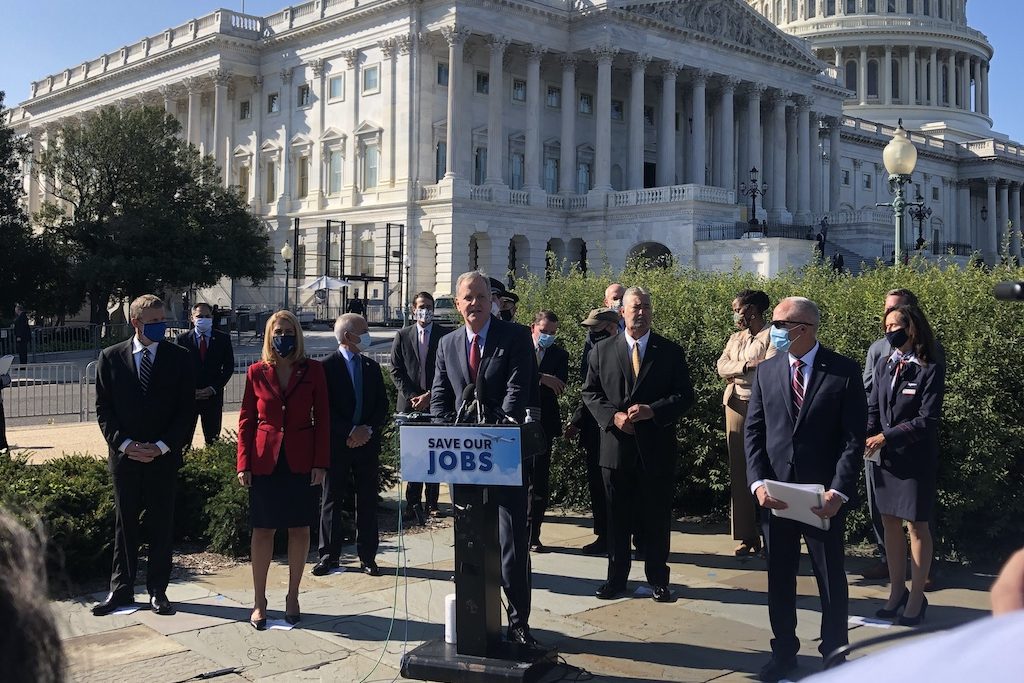U.S. Airlines Are Failing Passengers This Summer: It Could Have Been Worse

Skift Take
Many U.S airlines are a mess this summer, with far more cancelations and delays than usual. On the worst days, overworked flight crews are often out of position, while airport and ground crews are overwhelmed by the onslaught of passengers and bags. Even at better prepared carriers, like Delta Air Lines, customers complain about long telephone wait times and airport queues.
A few airlines are doing OK, but are taking actions that suggest they're only a few bad days from calamity. JetBlue is giving $800 bonuses to flight attendants who don't take days off between July 1 and Sept. 6, CNBC reported.
Each airline has a slightly different excuse for operational miscues, and some like to blame the weather, as if summer thunderstorms aren't a way of life in the Midwest, Florida and Texas. But most of the pain comes from the same reason: Airlines are ill-prepared to handle the spike in passenger traffic. It shouldn't be surprising that Southwest Airlines and American Airlines, two carriers that rushed to add-back more capacity than peers, are among the worst offenders.
You can look at this situation in one of two ways. You can criticize airlines for taking bailouts — Axios reported U.S. carriers have accepted $54 billion from the U.S. Treasury Department since the pandemic began — and castigate them for not properly using that money to prepare for recovery. They had to know millions of Americans would want to travel at the same time, right?
People with this opinion have a point. No other industry received such lucrative support as airlines, even though many suffered deeply from the pandemic. Congress seemed to go out of its way to assist airlines, and now airlines are failing passengers. It's not a good look.
Yet you also can see this from another view. Many airlines are a mess, even after receiving billions in bailouts. Do you know how much worse for customers this summer would have been had airlines not received government support?
Rude Awakenings
Airlines would be in dire shape. You can say you don't care, that airline executives and investors deserve to face the consequences of this Black Swan event. But don't you think that you — the traveler — might have been in for a rude awakening, too?
Let's say airlines received no money. As soon as it became clear the government would not step in, tens of thousands of front-line employees, from airport and phone agents, to pilots and flight attendants, would have gone on furlough. Meanwhile, at headquarters, it would have been a bloodbath, with thousands losing their jobs. In addition, carriers would have retired even more airplanes, or worse, defaulted on lease and ownership payments.
Yes, airlines would have looked to private markets for funding, and probably would have taken enough money to keep themselves in business (barely). They would have limped along until April 2021, when airline executives would have looked at vaccination statistics and concluded they could spool up. They would have realized customers would want to return, en masse, during their summer holidays. They would have recalled as many pilots and flight attendants as they could.
It would have been too late. Airlines cannot retrain tens of thousands pilots and flight attendants in a couple of months, ensuring they meet all Federal Aviation Administration requirements. Airline training centers are not big enough to process everyone at once. Maybe they would have been ready for summer 2022 demand.
Without enough workers, airlines would have launched skeleton schedules. They would have rationed their limited seats in the only way they know how — by jacking up prices. Not just by a few hundred dollars, as they might around the Christmas holiday, but likely to prices no one has ever seen for a domestic trip. After seeing $3,000 cross-country tickets, consumers would have gone nuts.
Think this scenario is overkill? Look at the car rental industry. It didn't receive nearly the same level of government support, so firms sold many of their cars, because they did not know when recovery would come. Prices for rental cars have skyrocketed — assuming you can get one. In many popular summer spots, car rental companies simply say they're sold out, forcing some consumers to rent U-Hauls instead.
But what about new airline entrants? Had multiple airlines sought bankruptcy protection, some argue we might have seen more U.S. airlines. Still, history shows us it is extraordinarily difficult to launch a new airline, and the process can take years. No airline would have been ready to go by July, to take you to grandma and grandpa's house. The FAA takes its time to certify new airlines.
Consumers Need to Be Honest
Yes, two new ones started during the pandemic — Breeze Airways and Avelo Airlines — but each had been in the works for several years. And though both were founded by CEOs with decades of airline experience, both now are tiny, and fly only within a small regional area. Eventually both will grow, but that takes time, as airlines take on airplanes and employees. They could not have scaled their operations fast enough to make up for lost supply, had established airlines not received bailouts.
Consumers need to be honest about what they expect from airlines. Yes, airlines are publicly traded, for-profit companies with shareholders, who in a perfect capitalistic world might have been wiped out by a once-in-century pandemic. But airlines are also a public service, which people rely on for personal and business reasons. Most consumers also would prefer their flights be reasonably priced with consistent service.
If consumers want to get anywhere by air this summer, at a reasonable price, they need to understand this is only possible because the government intervened and paid employee salaries during the worst of the pandemic.
Rather than criticize airlines for taking government money, consumers might want to thank their elected officials for subsidizing their summer trips.




